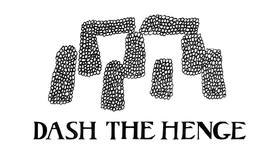
The Last Poets
Understand What Black Is
Regular price
$37.00
Unit price
per
This is The Last Poets' 50th anniversary year, and they've celebrated it with an album that matters - not just musically, but as a record of the times we're living in. The Last Poets are weathervanes, warning of the future and past sins in poems that are indivisible from the rhythms they're voiced on. Think warriors reporting from the battlefield; but their work is also a test of our own courage, because are you ready to receive what they're saying? And is your heart clean and strong enough to withstand the truth?
These ten tracks speak of their own journey, and that of a revolutionary struggle largely defined by race when The Last Poets first came together at an event commemorating Malcolm X in East Harlem's Marcus Garvey Park during the spring of 1968. That initial line-up, comprised of Dahveed Nelson, Gylan Kain and Felipe Luciano proved short-lived and it was a trio of different voices that would secure their legacy with a debut album, 1970's Last Poets, that sounds just as radical and challenging today as it did nearly fifty years ago. Two of their members from that time, Umar Bin Hassan and Adiodun Oyewole, still wear the mantle of Last Poets. "Back then, I wanted to see everything burned and people hanged. I wanted to see riots," says Abiodun, who's from Queens in New York, and took over from Nelson in 1969. He was missing from their follow-up album This Is Madness, after being jailed in North Carolina for armed robbery. "Each of The Last Poets has their own stories about problems with the law," he reflects. Umar, who wrote the title track of This Is Madness, was next to leave. He was living in Brooklyn by then, and struggling with substance abuse. Speaking on the phone from his home in Baltimore, he makes the point that their poetry wouldn't have the same impact had their resolve not been tested along the way, and there's an unassailable truth to this.
These ten tracks speak of their own journey, and that of a revolutionary struggle largely defined by race when The Last Poets first came together at an event commemorating Malcolm X in East Harlem's Marcus Garvey Park during the spring of 1968. That initial line-up, comprised of Dahveed Nelson, Gylan Kain and Felipe Luciano proved short-lived and it was a trio of different voices that would secure their legacy with a debut album, 1970's Last Poets, that sounds just as radical and challenging today as it did nearly fifty years ago. Two of their members from that time, Umar Bin Hassan and Adiodun Oyewole, still wear the mantle of Last Poets. "Back then, I wanted to see everything burned and people hanged. I wanted to see riots," says Abiodun, who's from Queens in New York, and took over from Nelson in 1969. He was missing from their follow-up album This Is Madness, after being jailed in North Carolina for armed robbery. "Each of The Last Poets has their own stories about problems with the law," he reflects. Umar, who wrote the title track of This Is Madness, was next to leave. He was living in Brooklyn by then, and struggling with substance abuse. Speaking on the phone from his home in Baltimore, he makes the point that their poetry wouldn't have the same impact had their resolve not been tested along the way, and there's an unassailable truth to this.
You may also like
-
![The Beatles - Get Back]() The Beatles - Get Back
The Beatles - Get Back$27.00





